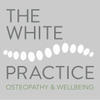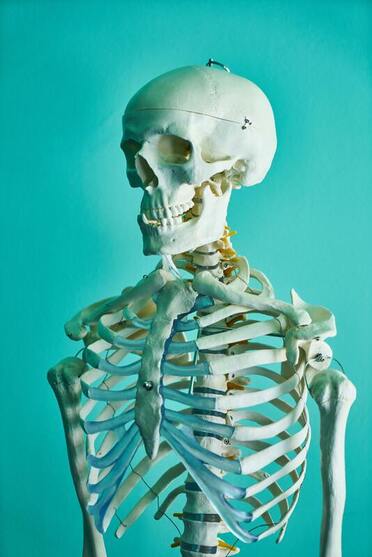How to keep your bones healthy and strong – top tips
We all know bones are important. They enable up to stand up and move, as well as providing protection for your organs. But did you know you bones are constantly changing? Our bone density is maintained by a fine balance between cells that breakdown and digest bone (picture Pakman) and cells that build new bone. When you are younger your bone density increases until the age of 30. After this you start to very slowly lose density. In some people the cells that build bones do not keep up with the cells that break them down and this leads to a faster than normal loss of bone density which can result in osteoporosis (brittle bones which fracture easily). So how can we keep our bones nice and strong and help to prevent osteoporosis?
Begin by binning the bad habits! Smoking and excessive alcohol consumption increase your risk of developing osteoporosis.
Diet – it’s all about what you put in! Research has shown that maintaining a healthy, balanced diet which includes lots of vegetables, oily fish and dairy can help maintain healthy bones. Calcium is one of the main minerals in bone so ensuring that you get enough calcium in your diet is essential. You will also need to have enough Vitamin D as this enables you to absorb the calcium you eat. However, it can be difficult to get enough vitamin D through diet alone. Happily, from April through to September, we are able to make our own vitamin D from sunlight. Unfortunately, in winter, many of us become deficient, so make sure you get your recommended amount of vitamin D. Other vitamins such as vitamin C and vitamin K also help keep your bones healthy.
Exercise – you snooze, you lose! Our bones respond to the demands we place on them. For instance, astronauts lose bone density much faster in space due to not being able to weight bare in the absence of gravity. Back here on earth, the more exercise you do, the stronger your bones become. And the good news is that it doesn’t have to me a huge amount of intensive exercise either. It is recommended that people aged between 19 -64 years should do a total of two and a half hours of aerobic exercise a week. Even if you aren’t able to manage that much exercise, simply going for a walk or a swim every day helps. Resistance training exercises have also been shown to increase bone density so get those resistance bands out!
#osteopath #howtokeepboneshealthy #bonehealth
We all know bones are important. They enable up to stand up and move, as well as providing protection for your organs. But did you know you bones are constantly changing? Our bone density is maintained by a fine balance between cells that breakdown and digest bone (picture Pakman) and cells that build new bone. When you are younger your bone density increases until the age of 30. After this you start to very slowly lose density. In some people the cells that build bones do not keep up with the cells that break them down and this leads to a faster than normal loss of bone density which can result in osteoporosis (brittle bones which fracture easily). So how can we keep our bones nice and strong and help to prevent osteoporosis?
Begin by binning the bad habits! Smoking and excessive alcohol consumption increase your risk of developing osteoporosis.
Diet – it’s all about what you put in! Research has shown that maintaining a healthy, balanced diet which includes lots of vegetables, oily fish and dairy can help maintain healthy bones. Calcium is one of the main minerals in bone so ensuring that you get enough calcium in your diet is essential. You will also need to have enough Vitamin D as this enables you to absorb the calcium you eat. However, it can be difficult to get enough vitamin D through diet alone. Happily, from April through to September, we are able to make our own vitamin D from sunlight. Unfortunately, in winter, many of us become deficient, so make sure you get your recommended amount of vitamin D. Other vitamins such as vitamin C and vitamin K also help keep your bones healthy.
Exercise – you snooze, you lose! Our bones respond to the demands we place on them. For instance, astronauts lose bone density much faster in space due to not being able to weight bare in the absence of gravity. Back here on earth, the more exercise you do, the stronger your bones become. And the good news is that it doesn’t have to me a huge amount of intensive exercise either. It is recommended that people aged between 19 -64 years should do a total of two and a half hours of aerobic exercise a week. Even if you aren’t able to manage that much exercise, simply going for a walk or a swim every day helps. Resistance training exercises have also been shown to increase bone density so get those resistance bands out!
#osteopath #howtokeepboneshealthy #bonehealth

